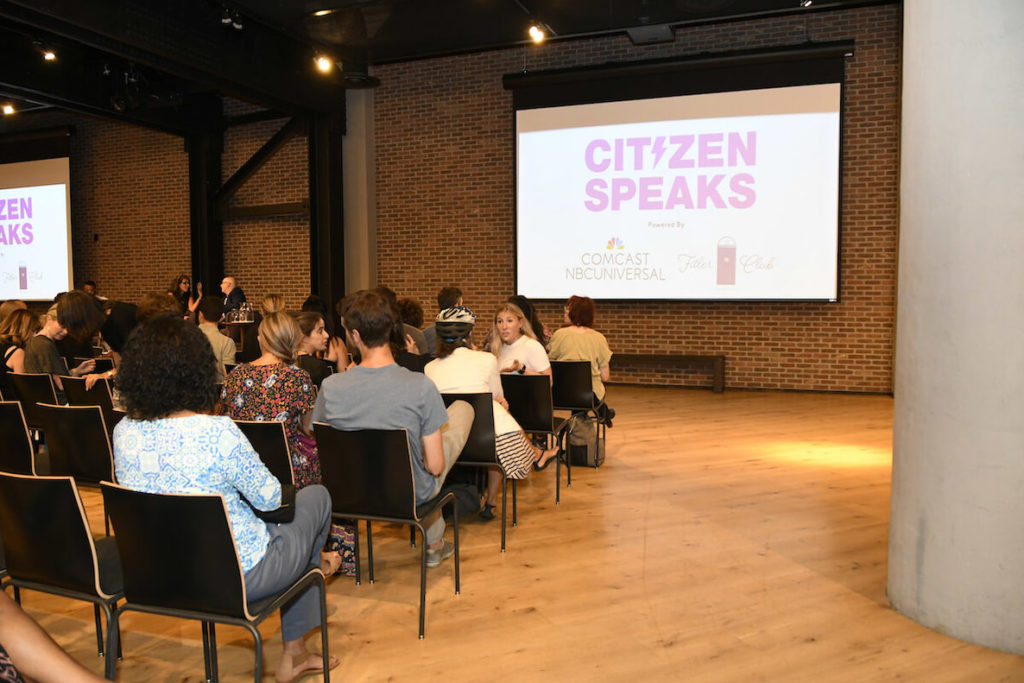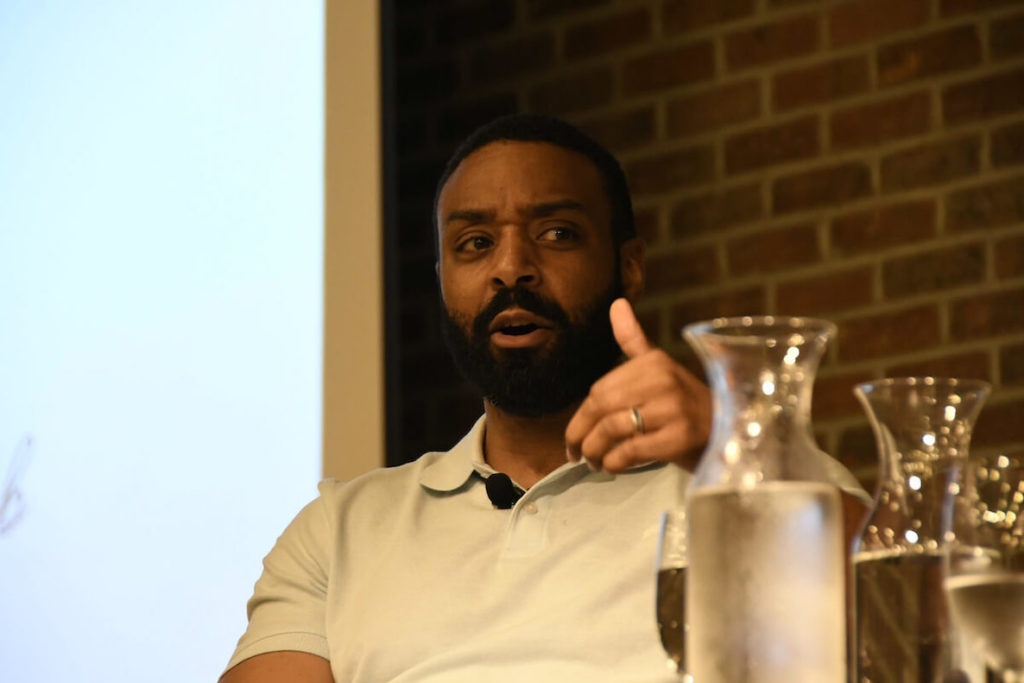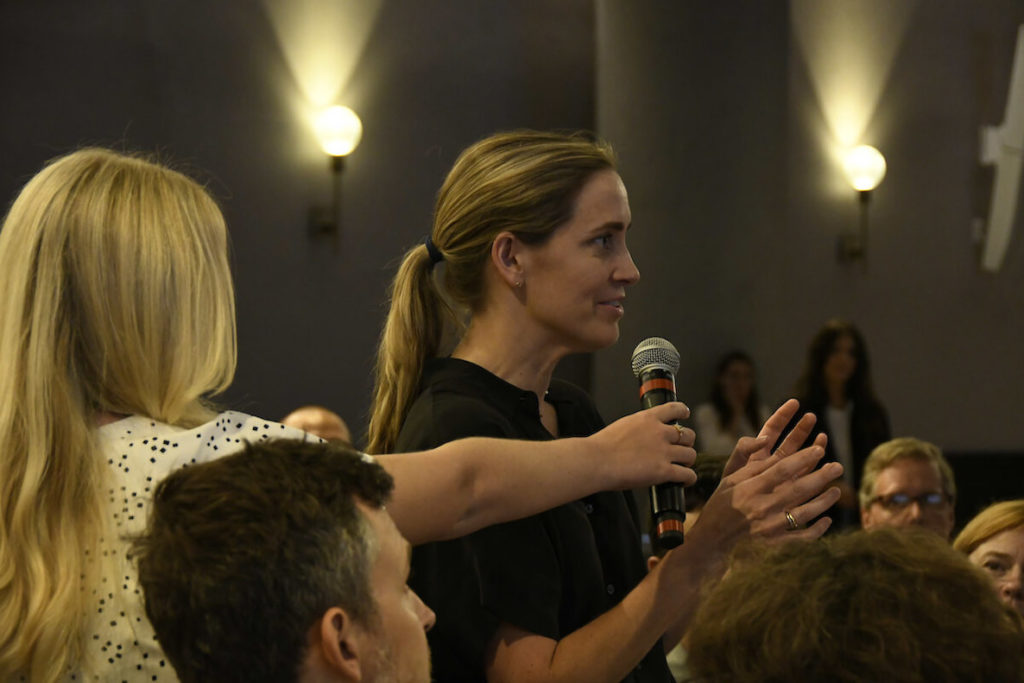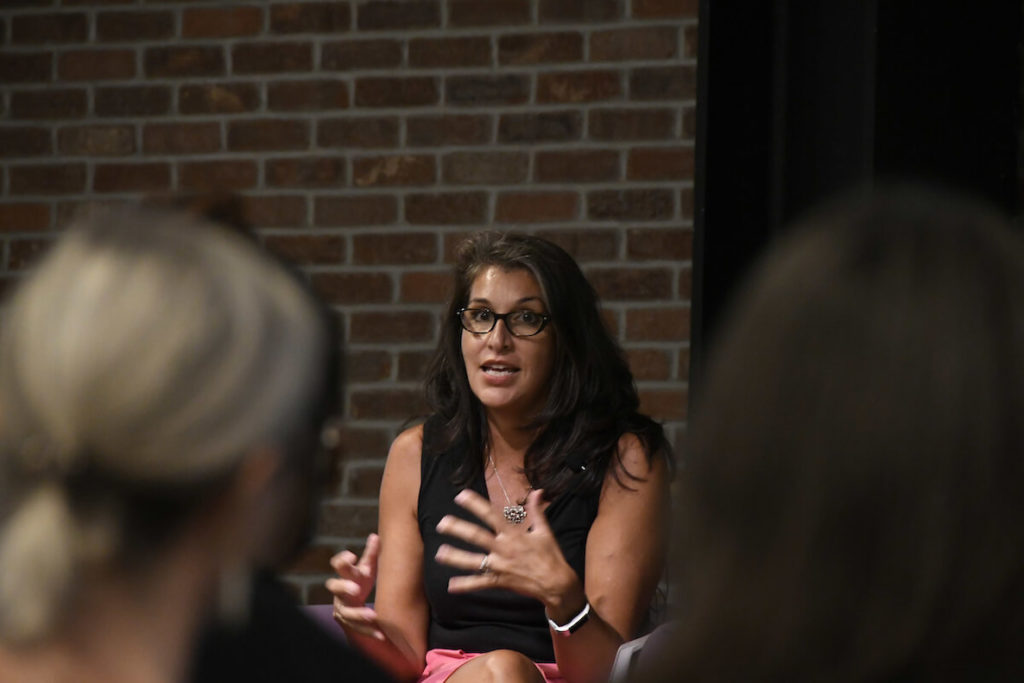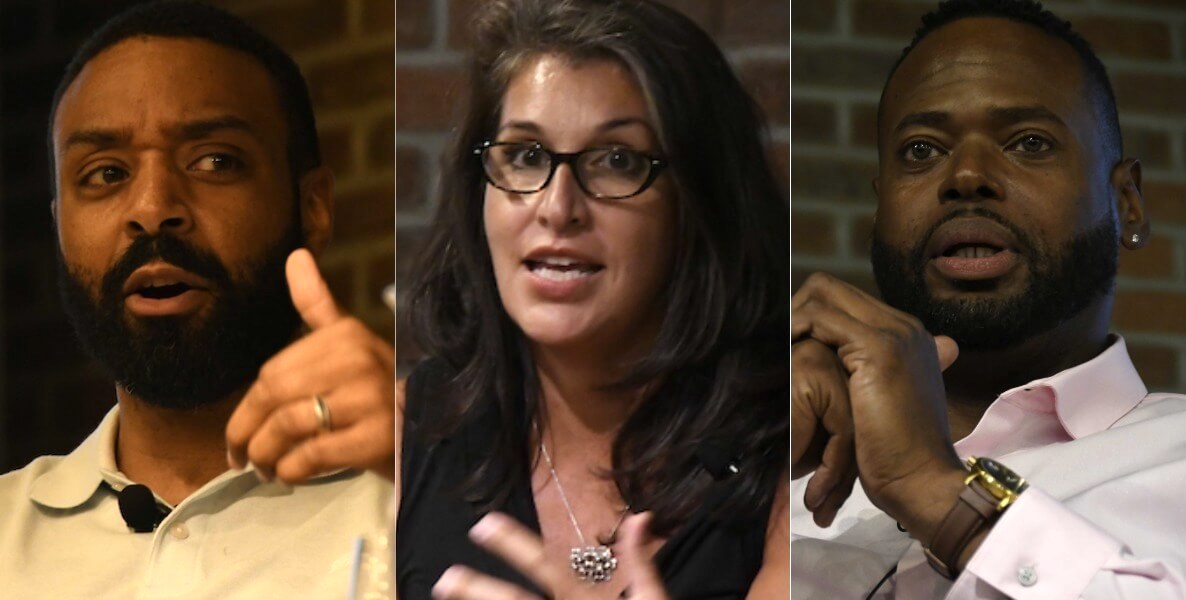Discussions around American education often overflow with statistics. But an avalanche of numbers threatens to bury the education system’s most important component—students—and distract from the long-term, human outcomes that matter most to their lives.
This theme permeated a July 14 panel hosted by The Citizen in which education leaders dissected innovative academic models, as well as the significant institutional barriers to educational reform. “Innovation in Education” was the first event in Citizen Speaks powered by Comcast NBCUniversal and Fitler Club, a yearlong speaker series focused on addressing the most pressing issues and most exciting opportunities facing our city and our country.
Panelists included Carlos Moreno, executive director of Big Picture Learning, a student-centered learning model in 150 schools, including two in Philadelphia; Heidi Ramirez, former chief academic officer of Milwaukee and Memphis public schools and former Philly School Reform commissioner; and Sylvester Mobley, founder of Coded by Kids, a nonprofit that educates young people from underrepresented groups in technology and entrepreneurship. They illuminated the nuances behind career-readiness strategies, scientific research on learning and its relationship to policy, and students’ disengagement from school following the Covid-19 pandemic.
Below are six key moments from the event. If you missed it, you can watch the full event here. And be sure to join us at all of our exciting upcoming events—we’d love to see you at Fitler Club, or online.
1. Encourage students to aim higher
As reformers try to improve educational opportunities for Black and brown students, employment is often the default objective. For Mobley, “employment is a pretty low bar to set.” Instead, he encourages students at Coded by Kids to expand their professional ambitions, and shoot for CEO and CTO positions.
2. Lead with students’ strengths and interests
“Too often, schools begin by trying to diagnose what a student doesn’t know, what they can’t do,” Moreno said. Instead, Big Picture Learning rethinks instruction at a philosophical level by focusing its model on what interests and excites its students.
RELATED: Mindfulness training is helping Philly students—and teachers—thrive
3. Not all innovation is created equal
“Innovation” has become a buzzword in the education space, according to Ramirez. She notices that many people assume new learning models are good simply because they are different—even when such proposals lack solid supporting evidence.
4. The fix for illiteracy is right in front of our face
When an audience member asked how she would use innovation to address illiteracy in Philadelphia, Ramirez responded that the research community has already revealed a lot about the science of learning. “We know a lot right now that we could do,” she said, and improving literacy requires not innovation, but time and effort to re-train teachers and revamp curricula around scientific research.
RELATED: A new teaching method might help more Philly students learn to read
5. Make privilege ubiquitous
Mobley’s nonprofit, Coded by Kids, has launched a venture capital fund to invest in startups led by their alumni and others from disadvantaged backgrounds. Some of his former students, he said, now take that support for granted—in a good way. “I like the fact that they see it as a given,” Mobley said. “They now have a level of privilege that their white counterparts traditionally have.”
RELATED: Five ways to support Black students and teachers—meaningfully
6. We have to spend money
According to Mobley, the education deficit for underprivileged communities is not due to a lack of innovation, but an intentional divestment in public schooling. Because wealthy white people often send their children to expensive private schools, they “obviously understand the relationship between cost and quality of education,” he said. “Why does cost become a problem when we talk about Black and brown kids?”
RELATED: 20+ education organizations in Philly to support with money or time
